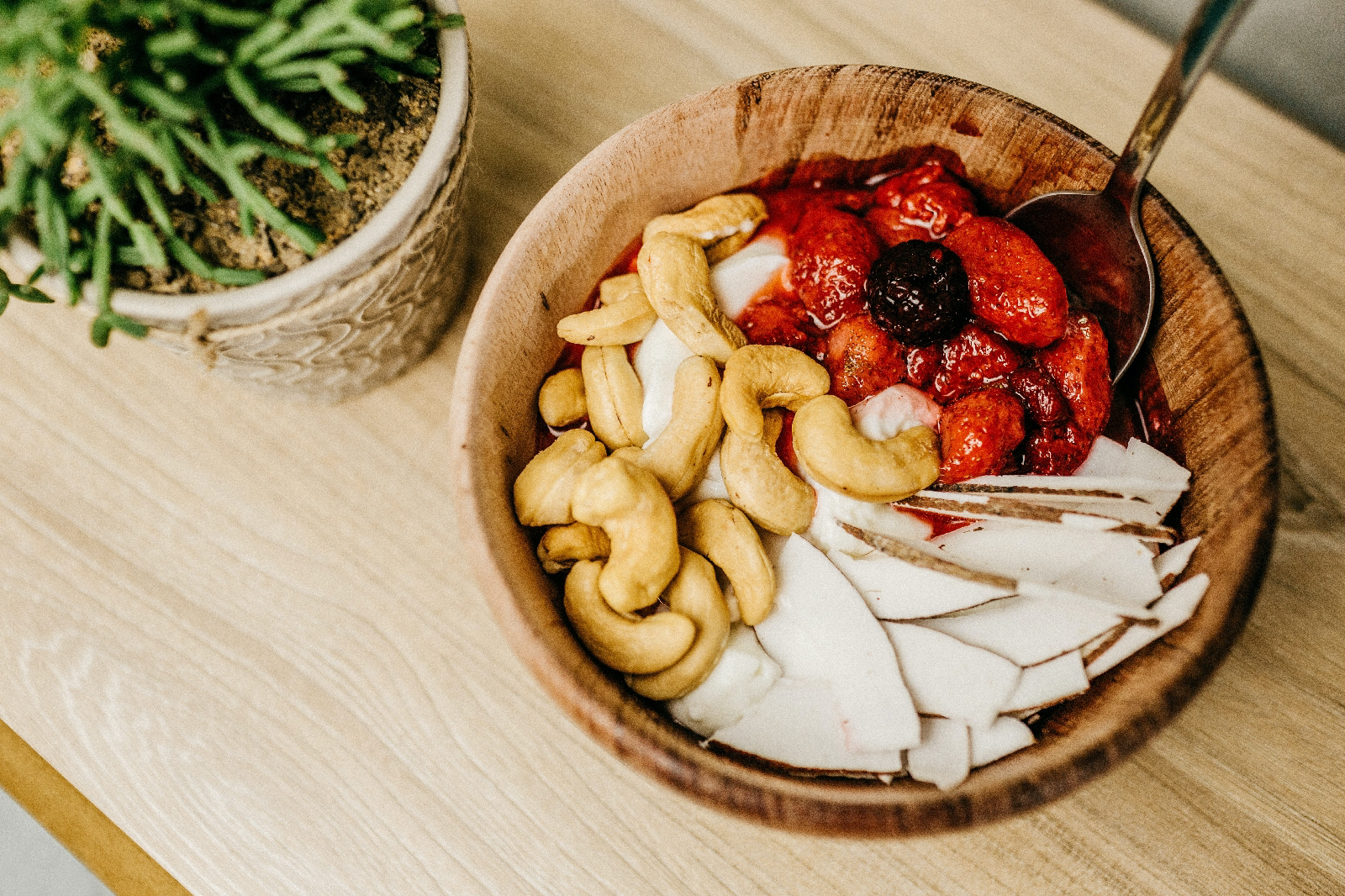1.) Improved Health:
A plant-based diet is connected with a reduced risk of chronic diseases such as heart disease, type 2 diabetes, and certain types of cancer. Plant-based foods are rich in fiber, vitamins, minerals, and antioxidants, which can help boost your immune system, lower inflammation, and promote healthy digestion. By eliminating or reducing animal products, you may also lower intake of saturated fat and cholesterol, which are connected to an increased risk of heart disease.
2.) Weight Loss:
Many people start following plant-based diet to lose weight and there is proof to support its effectiveness. A plant-based diet is low in calories and high in fiber, which can make you feel full and satisfied while consuming fewer calories. Plant-based diets also higher in carbohydrates and lower in fat and protein, which can help regulate blood sugar levels and promote weight loss.
3.) Environmental Benefits:
In addition to the health benefits, a plant-based diet can also have a positive impact on the environment. agriculture is a major contributor to greenhouse gas emissions, water pollution, and deforestation. By reducing or eliminating animal products from your diet, you can help reduce greenhouse gases and protect the planet.
Tips for Adopting a Plant-Based Diet
If you're interested in adopting a plant-based diet, here are some tips to get started:
1.) Start slowly:
You don't have to go too fast and eliminate all animal products from your diet overnight. Instead, try adding more plant-based meals into your diet day by day.
2.) Focus on whole foods:
Choose whole or minimally processed foods such as fruits, vegetables, whole grains, legumes, nuts, and seeds. Avoid highly processed foods and added sugars.
3.) Experiment with new recipes:
Try out new recipes and experiment with different flavors and ingredients. There are many plant-based recipes available online, so you're sure to find something that will suit your taste.
4.) Plan ahead:
Plan your meals ahead of time to ensure that you're getting a variety of nutrients and enough protein. It can also help to meal prep and batch cook to make healthy eating more convenient.
5.) Supplement wisely:
If you're concerned about getting enough nutrients on a plant-based diet, consider taking a multivitamin or supplementing with nutrients such as vitamin B12, which is not found in plant foods.
Here's a sample plant-based diet schedule that provides a balanced and nutrient-rich diet for different types of individuals:
1.) Plant-Based Diet Schedule for Active Adults:
- Breakfast: Overnight oats with fruit, nuts, and seeds or whole-grain toast with avocado and tomato slices
- Mid-Morning Snack: Fresh fruit or mixed nuts and seeds
- Lunch: Tofu or chickpea salad with leafy greens and a variety of vegetables
- Afternoon Snack: Fresh vegetable crudites with hummus or guacamole
- Dinner: Grilled tempeh or tofu with roasted vegetables and quinoa or brown rice
- Dessert: Fresh fruit with coconut yogurt or chia pudding
2.) Plant-Based Diet Schedule for Pregnant Women:
- Breakfast: Smoothie bowl with berries, spinach, nuts, and seeds or whole-grain toast with nut butter and banana slices
- Mid-Morning Snack: Fresh fruit or a handful of trail mix
- Lunch: Tofu or lentil soup with whole-grain bread or sweet potato and black bean bowl with avocado and salsa
- Afternoon Snack: Homemade energy balls or fresh veggies with hummus
- Dinner: Stir-fry with tempeh or tofu, mixed vegetables, and brown rice or roasted vegetables with chickpeas and quinoa
- Dessert: Fresh fruit with coconut yogurt or a small serving of dark chocolate
3.) Plant-Based Diet Schedule for Children:
- Breakfast: Whole-grain cereal with non-dairy milk and fruit or whole-grain pancakes with nut butter and fruit components.
- Mid-Morning Snack: Fresh fruit or carrot sticks with hummus
- Lunch: Tofu or peanut butter and jelly sandwich with carrot sticks and apple slices or whole-grain pasta with tomato sauce and vegetables
- Afternoon Snack: Non-dairy yogurt with berries or homemade granola bars
- Dinner: Bean and vegetable burrito with guacamole or baked sweet potato with black beans and salsa
- Dessert: Fresh fruit or homemade fruit popsicles
4.) Plant-Based Diet Schedule for Older Adults:
- Breakfast: Tofu scramble with whole-grain toast or oatmeal with nuts, seeds, and fruit
- Mid-Morning Snack: Fresh fruit or a handful of mixed nuts and seeds
- Lunch: Lentil or bean soup with whole-grain bread or kale and white bean salad
- Afternoon Snack: Fresh vegetables with hummus or a small serving of whole-grain crackers with nut butter
- Dinner: Grilled tempeh or tofu with roasted vegetables and brown rice or lentil and vegetable stir-fry
- Dessert: Fresh fruit or a small serving of non-dairy ice cream
Note: These are just sample plant-based diet schedules, and it's important to consult a registered dietitian to create a personalized plan that meets your nutritional needs.
In conclusion, a plant-based diet can offer various health benefits, promote weight loss, and have a positive impact on the environment. If you're considering adopting a plant-based diet, remember to start slowly, focus on whole foods, experiment with new recipes, plan ahead, and supplement wisely.

















